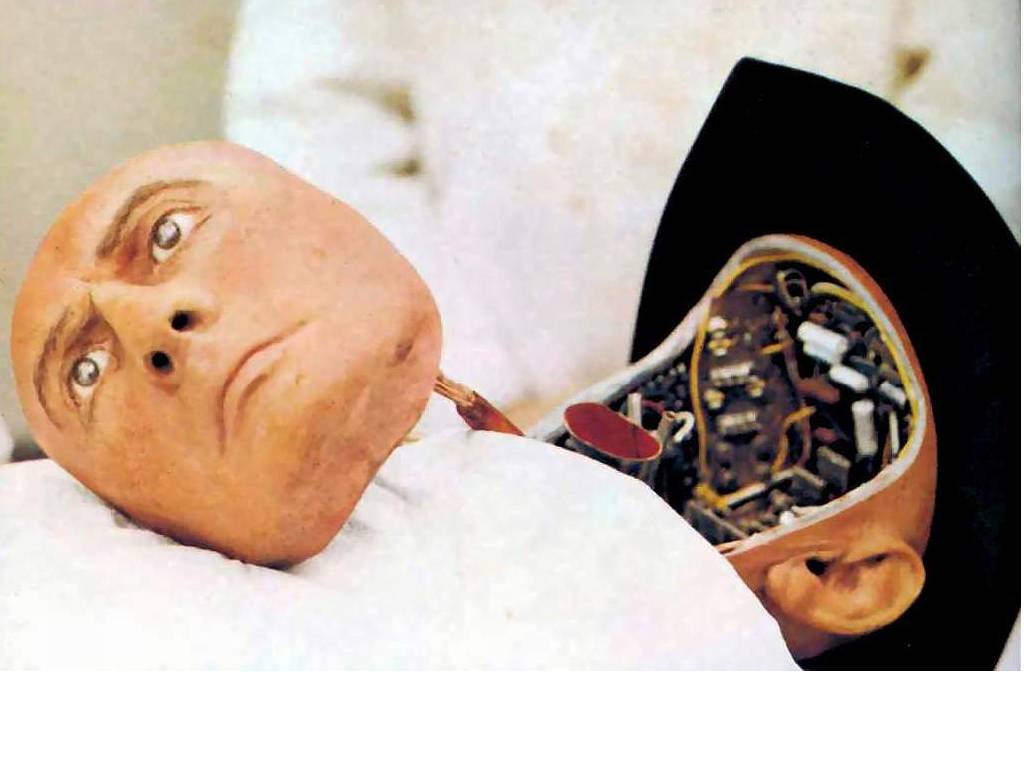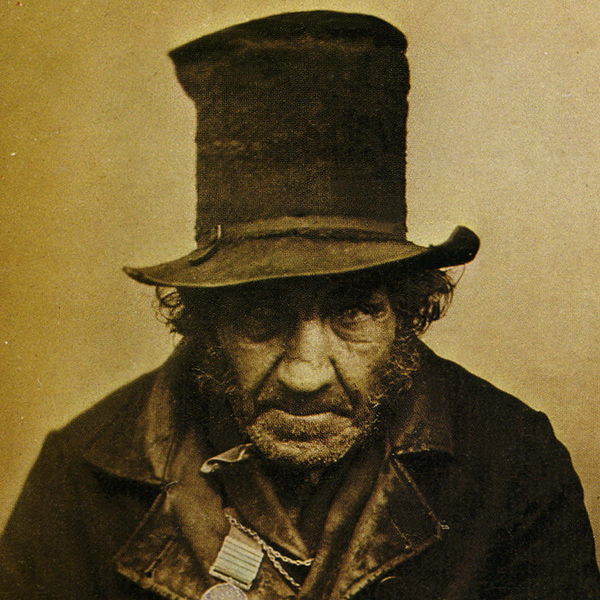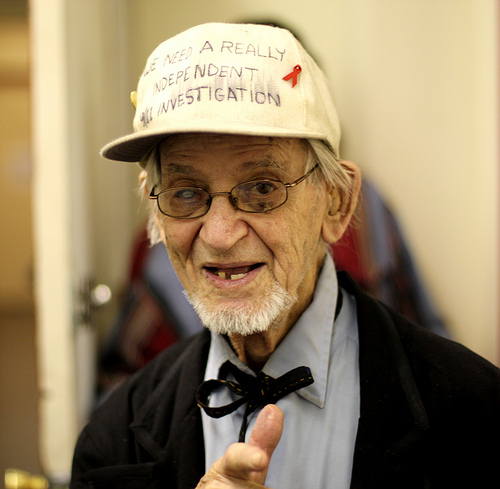Viewtron, an early online service from AT&T and Knight-Ridder, opened its virtual doors in South Florida in 1983, offering email, banking, shopping, news, weather and updated airline schedules. Despite quickly reaching 15 U.S. markets, Viewtron folded in 1986, victim of being ahead of the wave before people had learned how to surf.
From “The First Wired President,” Tom Wheeler’s smart New York Times Disunion post about Abraham Lincoln’s embrace of technology:
“Up until May 1862 Lincoln had sent, on average, a little over one telegram a month. But things changed when a telegraph office was opened next door to the White House, in the War Department. On May 24 the president had his online breakout, sending nine telegrams. That week he would send more than all his previous messages, combined. From May 24 — 18 years to the day since Morse had first tapped out ‘What hath God wrought’ — forward, Lincoln and the telegraph were inseparable.
The new telegraph office became the first Situation Room. Several times a day the president would walk into the telegraph office, sit down at the desk of its manager and begin going through the copies of all telegrams received, whether addressed to him or not. During great battles the president would even sleep in the telegraph office, just to be close to his oracle.
Using the telegraph to extend his voice was an obvious application of the technology. ‘You are instructed…to put twenty thousand men (20,000) in motion at once for the Shenandoah,’ the president ordered Gen. Irvin McDowell on May 24. Less obvious, however, was how Lincoln made the telegraph his eyes and ears to distant fields and the keyhole into his generals’ headquarters. As he sat in the telegraph office reading messages, he gained insights, felt the pulse of his Army in the field and reacted.”
Tags: Abraham Lincoln, Tom Wheeler
At the BBC, sci-fi writer Elizabeth Moon suggests humans get bar codes at birth:
“If I were empress of the Universe I would insist on every individual having a unique ID permanently attached – a barcode if you will; an implanted chip to provide an easy, fast inexpensive way to identify individuals.
It would be imprinted on everyone at birth. Point the scanner at someone and there it is.
Having such a unique barcode would have many advantages. In war soldiers could easily differentiate legitimate targets in a population from non combatants.”
Tags: Elizabeth Moon
From a BLDG BLOG post about zero-gravity design, which is necessary to build hotels and other structures in space to lodge and care for a new breed of tourist:
“Given all the justifiable excitement in the past few days about the successful launch of SpaceX, Milan’s Domus Academy is hosting a rather well-timed two-week design intensive this summer called ‘Zero-Gravity Design: Products & Microenvironments for Orbiting Hotels.’
It runs from July 2-13, 2012, and will be taught by ‘aerospace entrepreneur’ Susmita Mohanty.
From the studio brief:
As the race to open up the space frontier to tourists revs up, so will opportunities for designers and architects. The participants of this course will design products and microenvironments for living aboard future Orbiting Hotels. The Space Tourists, will have to, after all, eat, drink, sleep, cleanse, exercise, work, play, improvise, relax, move, stay still, contemplate, congregate, seek privacy and look out of the window. These everyday tasks, and more, open up an infinite range of design possibilities.”
Tags: David Letterman, David Ogilvy
Thanks to the Browser for pointing out that “Transfiguration,” Raffi Khatchadourian’s fascinating February New Yorker article about face transplantation, has just been ungated. The opening:
“God took Dallas Wiens’s face from him on a clear November morning four years ago. If you ask Wiens, he will say that it was neither an accident nor a punishment; it was simply what had to happen. At the time, he was trying to paint the roof of the Ridglea Baptist Church, just off Route 30, in Fort Worth. He was twenty-three, and suffering from the complications of being young and living a life of trouble, heartache, and restlessness.
Wiens had been adrift since adolescence. At fourteen, a traumatic incident—something that he can’t bear to talk about—had shaken him, cut into the core of who he was. He promised himself never to smile again, to detach himself from any emotion. Although he had grown up in a Christian home, he decided to turn his back on God. He fought often at school. By eighteen, he had left home, and was using drugs, dealing drugs, and carrying guns. He joined the Army, to clean himself up, but he had a bad knee and trouble with authority, and so he left. He tried to keep away from Texas, but poverty drew him back, and he got a local girl pregnant. While she was giving birth, the baby nearly died. In the hospital, Wiens asked someone if it was O.K. to cry, and then cried like never before. When the baby was born, a tiny girl at twenty-seven weeks, he filled up with emotion. He married the mother of his child, thinking that it was the right thing to do, but the marriage fell apart. He wanted change. He wanted to reënlist, to escape the mess of his story, to be a good father, a better man. Like all of us, he kept trying to find his way.
Wiens needed civilian medical and psychological evaluations before returning to the Army, and for that he needed money, which is how he ended up at the Ridglea Baptist Church on November 13th, the day his face was destroyed. He found the job through his oldest brother, Daniel; their uncle, Tony Peterson, was going to be working with them. They planned to do some touchup painting from a boom lift, which can hoist a man into the sky with a giant hydraulic arm. It was a small job. They debated where to position the machine, how far from the church, and decided that Wiens would go up. Daniel went around to the other side of the building. Wiens got into the lift and began operating the hydraulics. He seemed preoccupied, Peterson recalled; he was staring straight ahead, unaware of the danger, as he rose and rose, until his forehead hit a high-voltage electrical wire suspended above him. The electricity gripped his body, coursing through his head and the left side of his torso. For about fifteen seconds, ionized gas enveloped him in an azure nebula. The smell of an electrical burn hung in the air.”
Tags: Dallas Wiens, Raffi Khatchadourian
MIT reaserchers have created a low-cost virtual-reality system. From Cult of Mac: “Not only can you reach into the virtual world and manipulate the objects you create there, but there’s a way to connect with others, locally or remotely, to collaborate within a shared 3D virtual space. Looks like all that virtual reality stuff from the late 1990s is coming around again, only with the iPad, an off-the-shelf computing system with plenty of power for this application.”
Just to simplify this for members of the Senate investigating whether Secret Service agents have been involved with prostitutes in the past: Yes, many, many times Secret Service agents have paid other people to perform sex acts with them. These agents possessed vital information and could have had a briefcase stolen or been blackmailed. You know who else has vital info and has had sex with prostitutes countless times over the years? Members of the Senate and Congress. Because many of them are on committees and are privy to sensitive info about the President, they also could be blackmailed. Additionally, many Presidents in the past (though not the current one by all accounts) have had all sorts of sexual affairs which could have put their lives and our state secrets in danger. Now you can save the money you’ve been spending on trying to learn that human beings have a difficult time controlling sexual impulses no matter what’s at stake.
I’m not condoning any of it, but representatives in D.C. pretending they’re shocked by important officials hooking up with prostitutes aren’t being very honest.•
Old smelly vinyl LP albums wanted (Stamford)
Do you have those old albums from the 1950s – 1970s that smell like mold and you no longer want? I’ll definitely take ’em whether there’re records in them or not. I’m starting a collection and don’t mind the smelly ones. I love the pictures on the albums. Can offer money for them too if you want, although probably not very much.
The future is scary not just for the unbalanced but for the observant as well. But questioning the road ahead and trying to blow it up so that no one can proceed are two very different things. It’s a thorny situation, then, for those who abhor the Unabomber’s violent acts but see sensible assertions in Ted Kaczynski’s anti-tech manifesto. Michigan philosophy professor David F. Skrbina finds himself in that tight spot, having become a confidante of sorts for the imprisoned domestic terrorist. From “The Unabomber’s Pen Pal,” Jeffrey R. Young’s revealing Chronicle of Higher Education piece about the unusual bond:
“But when David F. Skrbina, a lecturer in philosophy at the University of Michigan here, read the manifesto in The Washington Post on the day it was published, he saw value in the message. He was particularly impressed by its clarity of argument and its references to major scholars on the philosophy of technology. He saw a thinker who wrongly turned to violence but had an argument worthy of further consideration. That argument certainly wasn’t perfect in Skrbina’s view, and he had some questions. Why not just reform the current system rather than knock it down? What was Kaczynski’s vision of how people should live?
In November 2003, Skrbina mailed a letter to Kaczynski, then as now in a supermax prison in Colorado, asking those and other questions designed ‘to challenge him on his views, to press him.’
So began a correspondence that has spanned more than 150 letters and has led Skrbina to help compile a book of Kaczynski’s writings, called Technological Slavery, released in 2010. The book is a kind of complete works of this violent tech skeptic, including the original manifesto, letters to Skrbina answering the professor’s questions, and other essays written from the Unabomber’s prison cell.
Today, Skrbina is something like a friend to Kaczynski. And he’s more than that. The philosophy lecturer from Dearborn serves as the Unabomber’s intellectual sparring partner, a distributor of his writings to a private e-mail list of contacts, and at times even an advocate for his anti-tech message.” (Thanks Browser.)
From the September 29, 1900 Brooklyn Daily Eagle:
“Flushing, L.I.–Ferdinand Dohn started to sneeze yesterday morning soon after he arose, about 6 o’clock, and he continued to sneeze until 8 o’clock last night, when he burst a blood vessel in the neck and was removed to the Flushing hospital.
The physicians there say that it is one of the most remarkable cases they have had to deal with.”
Tags: Ferdinand Dohn
I told you recently about the publication of The Lowbrow Reader Reader, a new book form of Jay Ruttenberg’s great zine about comedy. (You can buy it from Amazon or the publisher.) Now comes news that there will be a publication party and music and comedy showcase at 7pm on May 29 at Housing Works Bookstore in Manhattan. And you are invited! It’s a free event, though the organizers ask that you contribute a couple of bucks or buy some refreshments while you’re there to help AIDS charities. Featured performers at the event:
- Wyatt Cenac: Hilarious Senior Correspondent of The Daily Show with Jon Stewart, one of my all-time favorite TV shows and a program that I would never criticize.
- Professor Irwin Corey: The 97-year-old comedian used to hang out with the Rolling Stones but now is stuck with Jay Ruttenberg.
- Supercute!: A great band made up of teenage girls. Sadly, they are amazingly talented and have their whole lives ahead of them. On the bright side: We’ve already ruined the planet and every time they try to text, the sun melts their little thumbs. Too bad, sweethearts.
- Adam Green: The more doelike half of the Moldy Peaches, and one of the best songwriters on Earth.
Find out all the information you’ll need here.
••••••••••
The Official Announcement:
Dear Friends,
I am thrilled to announce the imminent arrival of our Pulitzer-worthy book, The Lowbrow Reader Reader, which will be published by Drag City in just a couple of weeks. To celebrate, we’re having an extra special Lowbrow Reader Variety Hour concert on Tuesday, May 29, at the lovely Housing Works Bookstore in Soho (126 Crosby Street, just below Houston). It will start promptly at 7pm and end around 8:30pm. Admission is free, but I would encourage everybody to give some money to Housing Works, whether by throwing some dollars in the pot or simply buying food and drinks while at the store. It’s a really wonderful charity that fights AIDS and homelessness.
Now check out this all-star line-up of performers! The night will include short sets from:
—Adam Green (one of the greatest songwriters in New York City and hence the known universe; a veteran of the Moldy Peaches and several outstanding solo albums including my favorite, 2010’s Minor Love)
—Wyatt Cenac (ludicrously, unjustly sharp stand-up comedian and senior correspondent for The Daily Show with Jon Stewart)
—Supercute! (your new favorite band, Supercute! stars three teenage girls: Julia Cumming, Olivia Ferrer, and Rachel Trachtenburg, of the Trachtenburg Family Slideshow Players)
–plus a special appearance by….Professor Irwin Corey (comedy LEGEND)
More information about the concert can be found here: http://www.housingworks.
More information about the book (including ordering information and whatnot) can be found here: http://www.dragcity.com/
It goes without saying, but I would love to see all of you at the show: Tuesday, May 29, 7pm, Housing Works Bookstore. Of course, please let me know if you have any questions!
Thank you!
Jay
Tags: Adam Green, Irwin Corey, Jay Ruttenberg, Supercute!, Wyatt Cenac
During May, no major news organization distinguished itself in the area of side-boob journalism like the Huffington Post. A few examples:
Bonus nip-slip coverage:
Peter Griffin, journalist:
Tags: Arianna Huffington
A segment about Marcel Duchamp and his unfinished meta-machine The Large Glass from Robert Hughes’ excellent 1982 program, The Shock of the New.
Tags: Marcel Duchamp, Robert Hughes
There are corresponding pieces in Wired and Businessweek about authoritarian rulers in the Internet Age, trying to defend their their regimes from wired dissidents by using new media tools and aggressive PR tactics.
- From Matthieu Aikins’ excellent Wired article, “Jamming Tripoli: Inside Moammar Gadhafi’s Secret Surveillance Network“:
“But like [Ghaida al-] Tawati, these activists would suffer greatly at the hands of Gadhafi’s spy service, whose own capabilities had been heightened by 21st-century technology. By now, it’s well known that the Arab Spring showed the promise of the Internet as a crucible for democratic activism. But, in the shadows, a second narrative unfolded, one that demonstrated the Internet’s equal potential for government surveillance and repression on a scale unimaginable with the old analog techniques of phone taps and informants. Today, with Gadhafi dead and a provisional government of former rebels in charge, we can begin to uncover the secret, high tech spying machine that helped the dictator and his regime cling to power.
The regime had been following Tawati online for years, and the harassment of her was mostly orchestrated by a group that came to be called the Electronic Army. According to former members, this loose organization was founded several years ago when Mutassim Gadhafi, one of the dictator’s playboy sons, had been enraged after videos of him attending a nude beach party on New Year’s Eve were posted online. Mutassim, who chaired Libya’s National Security Council, created a group of Internet users, some paid, some volunteer, to try to take down those videos and other anti-Gadhafi material posted online. They bombarded YouTube with flags for copyright infringement and inappropriate content; they waged a constant back-and-forth battle with critics of the regime, whom they would barrage with emails and offensive comments.
After all the cruelties she had endured as a child, Tawati could deal with the insults directed at her. But it stunned her when, in August 2010, some of her private email exchanges with other dissidents somehow got leaked to Hala Misrati, a notorious TV propagandist and one of the Electronic Army’s apparent leaders. How had her accounts been compromised, she wondered?
The answer, though she would not know it until after the regime fell, lay in a secret deal Gadhafi had made with a company called Amesys—a subsidiary of the French defense firm Bull SA—for technology that would allow his spy services to access all the data flowing through Libya’s Internet system. In a proposal to the regime dated November 11, 2006, Amesys (then called i2e Technologies) laid out the specifications for its comprehensive Homeland Security Program. It included encrypted communications systems, bugged cell phones (with sample phones included), and, at the plan’s heart, a proprietary system called Eagle for monitoring the country’s Internet traffic.”
- From Joshua Kurlantzick’s Businessweek review of William J. Dobson’s new book, The Dictator’s Learning Curve: Inside the Global Battle for Democracy:
“These New Age autocrats, he says, can no longer rule by brute force. Instead, they use ‘more subtle forms of coercion’ while investing heavily in maintaining the appearance of rights, law, and elections, and keeping their borders open so that opponents can always leave. ‘Modern dictators,’ he contends, ‘understand it is better to appear to win a contested election than to openly steal it.’ He points to Chavez, who altered legislation to boost his chances of electoral victory, then, after winning, used his poll victory to eviscerate opponents—never accepting the idea, crucial to democracy, of legitimate differences between parties. Then there’s Putin, who maintains the façade of a constitution while working in what Dobson calls the ‘seams of the political system’ to centralize power, using proxies to take over leading companies and key media outlets. Putin has created government-dominated NGOs that mimic free speech but make it harder for activists to get their voices heard.
Today’s smartest dictators, such as the Chinese Communist Party, adopt many of the technocratic methods of the most successful modern businesses, justifying their rule with their economic success. The CCP operates by consensus at the highest levels, while tailoring the government, at local levels, to enhance the delivery of services without actually opening up the political system. The party also normally keeps its internal debates internal, presenting a uniform face to citizens.”
Tags: Joshua Kurlantzick, Matthieu Aikins, Muammar el-Qaddafi, William J. Dobson
Dick Cavett and Eddie Murphy discussing the use of the N-word in Huckleberry Finn, both freely saying the whole word repeatedly. I would assume this is the Cavett show iteration that aired on USA cable in 1985-86, but it looks as if it could have been shot in his garage in front of hobos. Lousy audio but worth it.
Tags: Dick Cavett, Eddie Murphy
New York’s Port Authority has announced that Airus Media hologram assistants will be installed at NYC airports to answer traveler questions. From Sarah Kessler at Mashable:
“One of the new customer service representatives at New York City’s three major airports this summer will stand out from the rest. She is friendly, helpful, and made out of plexiglass.
In other words, she’s North America’s first avatar airport customer service representative.
The Port Authority of New York and New Jersey unveiled the virtual assistant Tuesday morning. It works by projecting video from a human spokesperson onto a life-size cutout of a woman.”
Tags: Sarah Kessler

"Anderson’s responses were still a good distillation of TED’s ideology." (Image by Steve Jurvetson.)
I enjoy a lot of TED lectures and have posted some here, but I highly recommend “Don’t Mention Income Inequality Please, We’re Entrepreneurs,” a smart Salon article by Alex Pareene about the wealthy organization’s unspoken politics. The opening:
“There was a bit of a scandal last week when it was reported that a TED Talk on income equality had been censored. That turned out to be not quite the entire story. Nick Hanauer, a venture capitalist with a book out on income inequality, was invited to speak at a TED function. He spoke for a few minutes, making the argument that rich people like himself are not in fact job creators and that they should be taxed at a higher rate.
The talk seemed reasonably well-received by the audience, but TED ‘curator’ Chris Anderson told Hanauer that it would not be featured on TED’s site, in part because the audience response was mixed but also because it was too political and this was an ‘election year.’
Hanauer had his PR people go to the press immediately and accused TED of censorship, which is obnoxious — TED didn’t have to host his talk, obviously, and his talk was not hugely revelatory for anyone familiar with recent writings on income inequity from a variety of experts — but Anderson’s responses were still a good distillation of TED’s ideology.”
Tags: Alex Pareene, Nick Hanauer

"The patient is first laid down and the surgeon with a small razor cuts a triangular piece of skin from the forehead."
I knew that people were getting cosmetic surgery in the 1800s, but I didn’t know that actual noses were being created from human flesh. From the July 22, 1888 edition of the Brooklyn Daily Eagle, an article originally published in the London Standard:
“They are discussing artificial noses in Vienna, it seems, and the savants take credit for a grand advance of science in this age over the immemorial methods of the East. Probably enough, their congratulations are justified; but we should have more faith if they showed better acquaintance with the methods they condemn. It is not the fact that Oriental surgeons take a strip of flesh from some other person’s body and make of it a new nose for their patient. That is a European practice of late date, and if Viennese authorities disapprove it they must quarrel with their confreres. The Eastern practice is ‘immemorial’ indeed, and for so many ages it has been used with success that neither operators nor sufferers are likely to change it. That practice is absolutely the same which the professors assert to be a modern triumph. Mr. Baden Powell, in his great work upon the arts and manufactures of the Punjab, describes it: ‘The patient is first laid down and the surgeon with a small razor cuts a triangular piece of skin from the forehead, which he dexterously twists just at the juncture of the nose with the brow so as to bring the right side of the skin to the front, etc., exactly as our scientific people do. It is a process hereditary in certain families of the Kangra district, where it was likely this art was exercised before Vienna was heard of.”
Tags: Robert Baden-Powell
The opening of “Fran Lebowitz on Race,” a 1997 Vanity Fair piece that was a revelation for a country that couldn’t yet visualize its first African-American President nor the Birther backlash that landmark would evoke:
“Do you think the proper way to talk about race now is to talk about multiculturalism?
I came from a town where there were two races, black and white. There were a few Chinese people, and this may sound shocking, but I had no idea they were a different race. I thought they were a different nationality, like Italian or French. Now you have people coming here from Cambodia, from Egypt, from Colombia, from places you never thought would be sending us their huddled masses. I mean, surely 20 years ago no one could have imagined a more unlikely pair of words than ‘Korean deli.’ And all these people think of themselves as being members of different races. Ethnic groups have taken on the same weight as racial groups, with the same demands, the same notion of themselves.
To me, this plays into the hands of the people in power — the white people. If you want to ensure generation after generation of Mexican gardeners in California, you insist on bilingual education in the grammar schools. You can pretend that you would just as soon have your cardiologist speak to you in Spanish, but if you don’t speak Spanish, you would just as soon not.
If you’re black, don’t you say to yourself, ‘We’ve been here for a zillion years, and here are all these people coming along, acquiring power by saying they’re powerless acquiring power by equating their lot with ours’? Blacks are the standard of oppression. People are always taking appalling historical events that one would hope are unparalleled and making absurd and immoral equations: the police raid the Stonewall Inn and instantly and forever it’s ‘Bull’ Connor turning the fire hoses on the marchers in Birmingham; antiabortion maniacs throw fetuses at abortion-performing doctors and an absolutely unembarrassed analogy is made to a lynch mob. These things are categorically unrelated, as are most things. Things are very rarely exactly like other things. If they were, people would be less baffled in general, and perhaps less given to such statements as ‘This is like the Holocaust.’ Nothing is like the Holocaust. Not that there haven’t been other tragedies, other genocides. But simply that they were peculiarly, specifically, intrinsically like themselves. Genocides are like snowflakes, each one unique, no two alike. You can’t go around making these horrendously invalid comparisons. It is disgraceful and annoying. If you were in Auschwitz, you undoubtedly feel that on top of having been in Auschwitz you shouldn’t also have to have your experience used to justify, say, gay marriage.
What is actually served by multiculturalism and all things attendant to it is the power of white people, and this, despite any and all such academic quibbling, is primarily accomplished by the continuing oppression of blacks. Because even though the conversation now includes all these other elements, the truth is that the farther you are from being black, the more likely you are to assimilate, to be more like white. The more you are like white, the less trouble you have because the more you are like white, the less trouble you are.”
••••••••••
Lebowitz comments on NYC and how Andy Warhol’s joke got out of hand:
Tags: Fran Lebowitz
My kid’s loss is your gain – Xbox 360 plus games and extras – $250 (Brooklyn – Will deliver 5 boros)
My kid is a smart-ass slacker. Yeah, that’s why he’s got summer school. But the punk is failing summer school already. I told him, you do shitty in summer school, your Xbox and Wii go bye bye, and I am a man of my word.
SO……
FOR SALE
An Xbox 360 Pro System with a 60GB hard drive. Still under warranty, less than a year old. Never had a problem with it except that lazy ass spent hours on it. It’s got all the cables, including an HDMI cable to hook up to his snazzy LCD TV (which might be next on craigslist if he doesn’t stop looking over my shoulder and START STUDYING!!!!) It’s got three controllers, one of which has a keypad attachment, There’s also 2 headsets for talking to his other slacker friends.
As for games, I think he hid all his favorites, but what I got was:
- Left 4 Dead
- Gears of War
- DeadRising
- Grand Theft Auto – Liberty City (I admit, I liked playing this one.)
Attached are a picture of all the crap you get, along with a picture of my kid slowly learning the consequences of his actions.
Price is $250. Why $250? Cause that’s how much the tuition is for Huntington Learning Center for my dullard of a son. Cash only. I’ll deliver, and I might even bring him along to teach him a lesson.
Before we realized that crowds might have wisdom, demographers worried mightily about overpopulation. The recent renaissance in demography has seen a shift in focus. From the Economist:
The main concern of demographers in their heyday (the 1970s and 1980s) was high fertility and the total number of the world’s people. This was the period of The Population Bomb, a bestseller by a biologist, Paul Ehrlich, which argued that the world could not feed itself. An international family-planning movement sprang up. Top-down programmes attempted to control the total size of national populations. China’s one-child policy is the best known and most extreme of these.
Now though, as John May, formerly of the World Bank and now Georgetown University, shows in World Population Policies, the focus of demographers has switched from the overall size of populations to their composition—that is, to age groups and their relation to one another. Instead of high fertility rates, demographers study ageing, dependency ratios, the ‘demographic dividend’ (a bulge of working-age adults) and distorted sex ratios, which result when millions of parents choose the sex of their children, often by aborting baby daughters.
The result, suggests Mr May, is that demography is more complex, if less dramatic, than it used to be.”
••••••••••
A 1972 UN film about threats to our environment, which features Paul Ehrlich. Also on hand: Indira Gandhi, Kurt Waldheim, Robert S. McNamara, etc.
Tags: Paul Ehrlich
In “Taking the Driver Out of the Car” at the WSJ, Randal O’Toole champions the proliferation of robocars over the Obama Adminstration’s proposal for a new high-speed national rail system, believing driverless vehicles can reduce congestion immediately and greenhouses gases in the near future. An excerpt:
“Driverless vehicles offer huge advantages over current autos. Because computer reaction times are faster, driverless cars can safely operate more closely together, potentially tripling highway throughput. This will virtually eliminate congestion and reduce the need for new road construction.
Toyota’s recent recalls naturally lead to worries that computer glitches could cause serious accidents. Since each car will be independently controlled, a failure in one would simply lead others to avoid that car. Modern cars already have numerous built-in computers that do things, such as anti-lock braking, far more reliably than humans, even those who are not texting or inebriated. Any serious problems could be quickly corrected through wireless software upgrades.
Driverless cars and trucks will be safer. They will also be greener, first by significantly reducing congestion, and eventually because vehicles will be lighter in weight due to reduced collision risks.”
Tags: Randal O'Toole
To H.G. Wells, Utopia wasn’t a perfectly pastoral or wholesome place, but one that was wise enough to separate the industrial and the green and adult entertainment from family fare. An excerpt from “A Modern Utopia,” 1905:
“But in Utopia there will be wide stretches of cheerless or unhealthy or toilsome or dangerous land with never a household; there will be regions of mining and smelting, black with the smoke of furnaces and gashed and desolated by mines, with a sort of weird inhospitable grandeur of industrial desolation, and the men will come thither and work for a spell and return to civilisation again, washing and changing their attire in the swift gliding train. And by way of compensation there will be beautiful regions of the earth specially set apart and favoured for children; in them the presence of children will remit taxation, while in other less wholesome places the presence of children will be taxed.”
Tags: H.G. Wells























